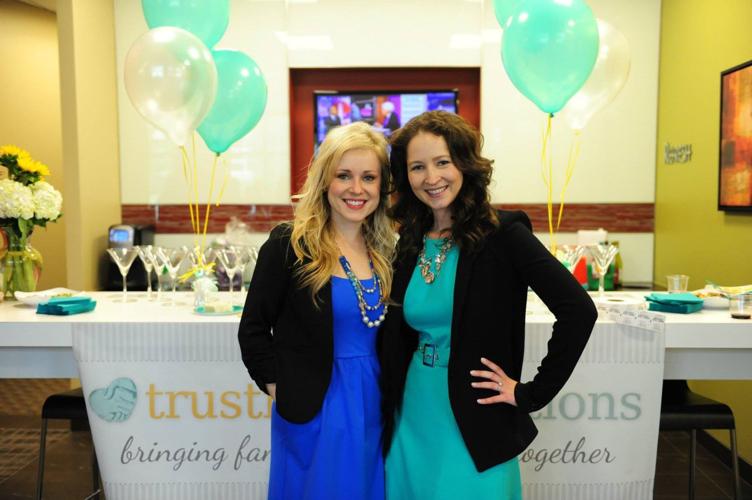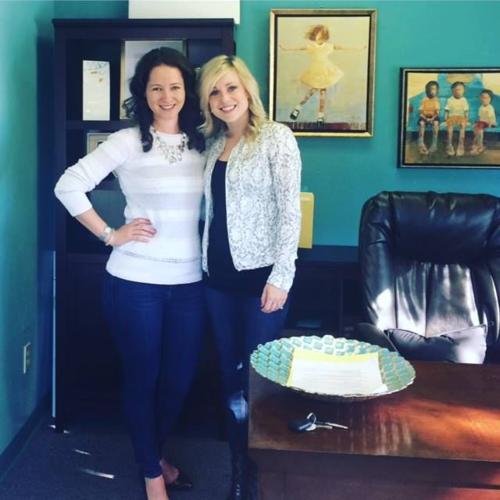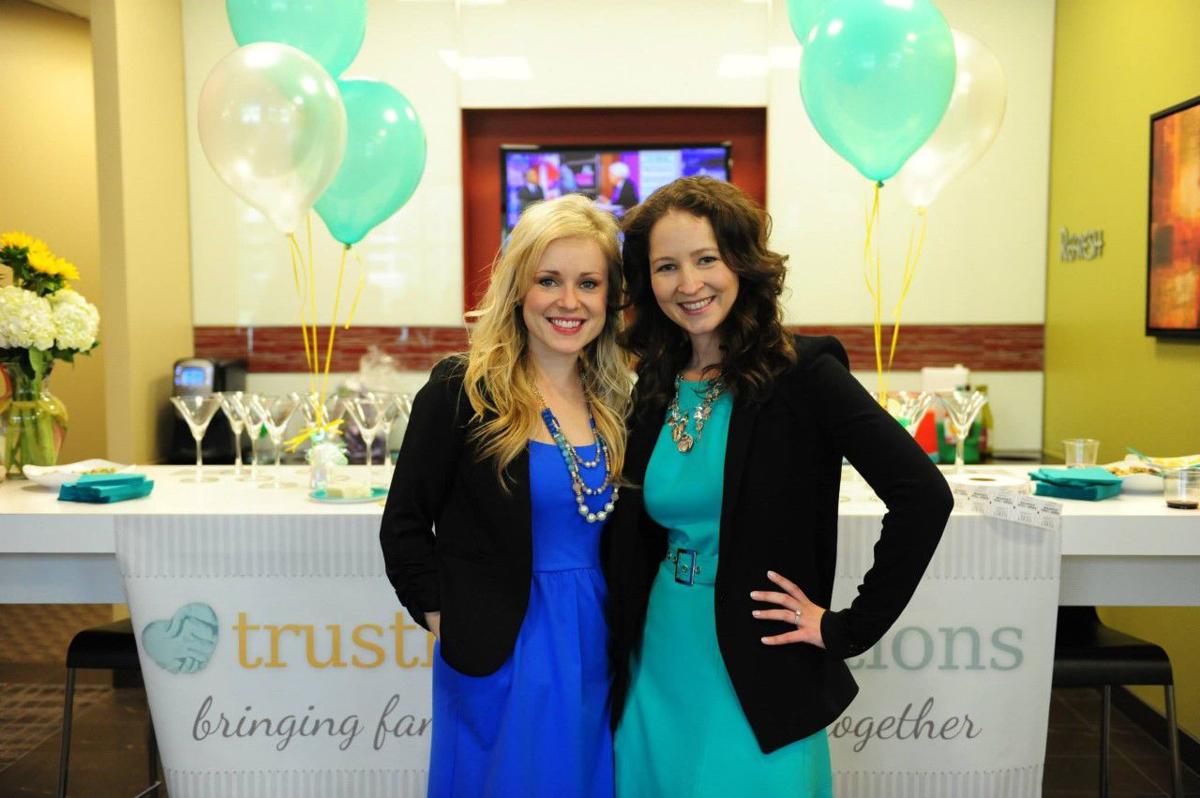As college students, Rosalind Prather and Caroline Malkin joked about starting a nanny agency.
Once a good laugh or a nice dream, the agency is now a full-blown business with a chance to win as much as $40,000 from the U.S. Small Business Administration. Malkin and Prather's nanny agency Trusting Connections won the local InnovateHER competition hosted by the YWCA of Southern Arizona's Women's Business Center on Saturday, June 3.
Emagine Technology Solutions, a local business that will use mobile devices for medical imaging, won the pre-venture portion of Saturday's competition.
Five businesses pitched their ideas as more developed companies, and three pitched for the pre-venture contest.
"I think it's a basis for women to have very important conversations about what is the state of economic justice for women in Southern Arizona," says Victor Mercado, the director of the Women's Business Center of Southern Arizona. "I think this competition accomplishes that."
Both companies will receive support from Startup Tucson, but only Trusting Connections will move forward for consideration in the national InnovateHER competition, which is designed to discover businesses and products that improve the lives of women and their families.
Prather and Malkin hope their nanny agency will do just that.
Now co-founders of Trusting Connections, the friends go way back.
All the way to middle school, to be exact.
Best friends in high school, roommates in college and now business partners, the women have turned a university joke into a business with an annual revenue of about $1 million, Prather says. The National Association of Women Business Owners reports that about 4 percent of women-owned businesses generate that much (or more) revenue.
"If you would have asked me in college if this is what I would have been doing, I would have laughed at you," Malkin, 31, says.
While students at the University of Arizona, Malkin and Prather nannied to earn some extra cash but studied nutrition and political science, respectively.
Prather considered becoming a lawyer. Before starting college, Malkin thought she might go the doctor route. Malkin says that she has been babysitting since she was 12, and in a family of seven, she was "second mom" to some of her younger siblings.
"I actually had a heart to be a stay-at-home mom..." says Malkin, who will soon be president of the Tucson chapter of the National Association of Women Business Owners. "I think in your 20s, you do a lot of discovery, and this just stumbled onto us, and now we can't imagine doing anything else."
After college, Malkin worked as a postpartum doula and Prather worked in tutoring.
"But we knew the limited options that were out there and knew them quite intimately," Prather, 30, says of their knowledge of the nannying world. "We felt like there was room for a better way of doing things, and we just knew that we could do better."
In January 2011, Malkin says she got a phone call from Prather.
"It's always Rosalind's idea..." Malkin says, laughing. "She said, 'Tucson needs this. We just need to do it.' So we started researching.'"

Caroline Malkin, left, and Rosalind Prather, right have been friends since middle school.
They opened Trusting Connections in August 2011.
Unlike many nanny agencies, the Tucson-based company employs its temporary nannies so that families don't have to shoulder that responsibility.
As a college student, Malkin remembers getting paid by a family and then owing the IRS quite a bit of money, come tax time.
There are two sides to Trusting Connections. One part of the business operates as a referral service for families looking for a permanent nanny, housekeeper, personal assistant or other home professional. Trusting Connections runs those candidates through background screenings, drug tests, interviews and other requirements. Those professionals do end up being employed by a family.
The other side to Trusting Connections gives families access to babysitters and nannies for a variety of occasions and needs. They are employed by the agency and also go through extensive screening. In fact, Malkin says finding qualified nannies has always been a challenge for the company.
Families then pay a monthly membership fee and by-the-hour for specific services.
"That other component is primarily nannies, school pickups, date nights, emergency back-up care," Malkin says. "We also do a lot of resort care here in town as well as events like corporate events and weddings."
They also offer newborn care and options to work with specialists such as doulas.
The company does home visits for every member and maintains personal touches even as it grows, for example, sending stressed moms a coloring book or kids a handwritten birthday card.
Prather, who has 3- and 5-year-old girls uses the nanny agency herself and even brings her kiddos to work, where there's a dedicated kids' room and office nanny.
Their InnovateHER pitch had to do with streamlining their scheduling process by creating software that doesn't exist. Currently, they use six different software platforms to schedule and communicate with employees, families and the business itself. None of those platforms talk to each other.
In 2015, they opened a second location in Southlake, Texas, in the Dallas/Fort Worth area. The company now employs about 100 people between the two locations.
"Our biggest competitors are online nanny-finding sites," Malkin says. "A client could go to a nanny-finder site and they can get a nanny with a click of a button. We know that’s not safe, but we need to be able to compete with that, and so that’s what we’re trying to do with this software platform."
Once the software exists, they imagine selling it to similar service industries such as housekeeping, landscaping and home repair.
They have begun to develop the software in stages. But they need $40,000 to make this happen — the same amount touted by the Small Business Administration as first prize for the national InnovateHER competition.
"It's a weird God thing, or whatever you want to call it, but when we got this email about InnovateHER, the day before, Rosalind was just saying that we needed $40,000 to make this software program..." Malkin says. "I forwarded (the email) to her and said, 'Here's your $40,000.'"
All local winners must submit a business plan, cover letter and other documents, and then the organizers of InnovateHER will select 10 businesses from that pile to pitch for the national win.
Malkin gave the pitch to Tucson judges Saturday morning.
"A lot of times, the focus on entrepreneurship and social innovation is around how do we solve complex problems and discuss what we see in our community," says Marisol Flores-Aguirre, the executive director of the Microbusiness Advancement Center at the YWCA. "We saw that all of the women who presented were looking at complex social problems and needs and gaps in the marketplace, and they found an innovative tool to create and solve those problems."
Together, Malkin and Prather have come far in solving the problems they see in their industry. Trusting Connections is involved with the International Nanny Association, a nonprofit umbrella organization that sets care standards for the industry.
They're no longer middle school besties. Malkin calls Prather her "work wife."
"We are really like we're married," Prather says joking. "We have more than 100 employees, which are our children. We argue about how to raise our children. We have finances and intermingle finances. We know each other very, very well. I think she knows me better than anyone, and I think I know her better than anyone. We are close on a level that I don’t think you usually get outside of friendship."
Because not every friendship nurtures a startup into a success.
"It takes a lot of grit to own an business, and I feel, and I know that Rosalind feels the same way, that we're blessed that we have a partnership because we both have different strengths ..." Malkin says. "It is having that passion to come in every day and keep going. We're pretty much self taught."






